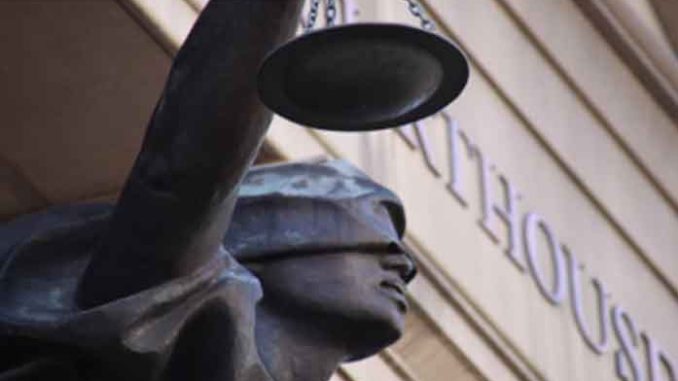
A superior court judge has been ordered by the Arizona Court of Appeals to reopen a contract dispute involving a $150,000 commercial roofing project.
Court records show that in June 2018, Arizona Custom Contracting Inc, doing business as All Valley Custom Contracting, filed a breach of contract lawsuit against David Green and Thomas Green, as well as four Safford area businesses connected to the Greens. The suit alleged the Greens still owed Custom Contracting nearly $100,000 for roofing job.
However, in November 2018, Gila County Judge Timothy Wright ruled Arizona Custom Contracting was legally bound by a three-sentence email sent by the company’s attorney in reply to a settlement offer from the Greens’ attorney. Wright was hearing the case on behalf of Graham County court officials.
The ruling resulted in an order that Custom Contracting pay a $30,000 outstanding vendor bill while receiving no money from the Greens. But now, the matter is going back to the judge for further proceedings after the court of appeals ruled May 29 that the email exchange between the two attorneys did not constitute an “unequivocal” acceptance of a settlement offer.
In its unanimous decision, the appellate court noted the only evidence of a purported settlement agreement was three short emails sent in 2018, two from the Greens’ attorney and one from an attorney representing Custom Contracting.
The first email, dated Aug. 9, 2018, was from the Greens’ attorney. It offered to settle the dispute via a $30,000 payment to one of the project’s vendors and Custom Contracting “accepting $0.00” from the Greens. In addition, the Greens would “walkaway” or give up their right to a possible counterclaim against Custom Contracting for fraud, breach of contract, and racketeering.
A week later, the attorney for Custom Contracting replied that his client “hereby accepts your client’s offer of $30,000 to resolve all disputes between the parties.”
Just minutes later, the Greens’ attorney responded, wanting to make sure “we are on the same page.”
According to the Greens, that page called for Custom Contracting to pay $30,000 to the supply vendor and the Greens would pay nothing to anyone. There was no response at the time from Custom Contracting.
The Greens then sent a formal settlement agreement to Custom Contracting’s attorney for signature. But when the agreement wasn’t returned, the Greens filed a motion asking Judge Wright to enforce a settlement based solely on the three-email exchange.
At a hearing in November 2018, Custom Contracting argued the Greens’ email offer “was ambiguous and subject to multiple interpretations” and that the company believed the offer meant the Greens would pay $30,000 to the vendor and nothing more to resolve the lawsuit.
Wright later ruled Custom Contracting was bound by its attorney’s acceptance email. The court of appeals, however, cited a 1990 case in its ruling last week, noting “a distinct intent common to both parties must exist without doubt or difference, and until all understand alike there can be no assent.”
The appellate decision also noted the Greens’ attorney even appeared aware of a possible misunderstanding when he responded “if we are not in agreement, please advise” after receiving Custom Contracting’s email.
“Accordingly here, we conclude that the trial court erred in determining that (Greens and Custom Contracting) had an enforceable settlement agreement as a matter of law,” it reads. “Indeed, we conclude, as a matter of law, that they did not.”
The Greens have 30 days to file a petition for review to the Arizona Supreme Court. If the justices don’t overturn the appellate decision, then the case will go back to Graham County for a judge to conduct further proceedings consistent with the court of appeals ruling.
